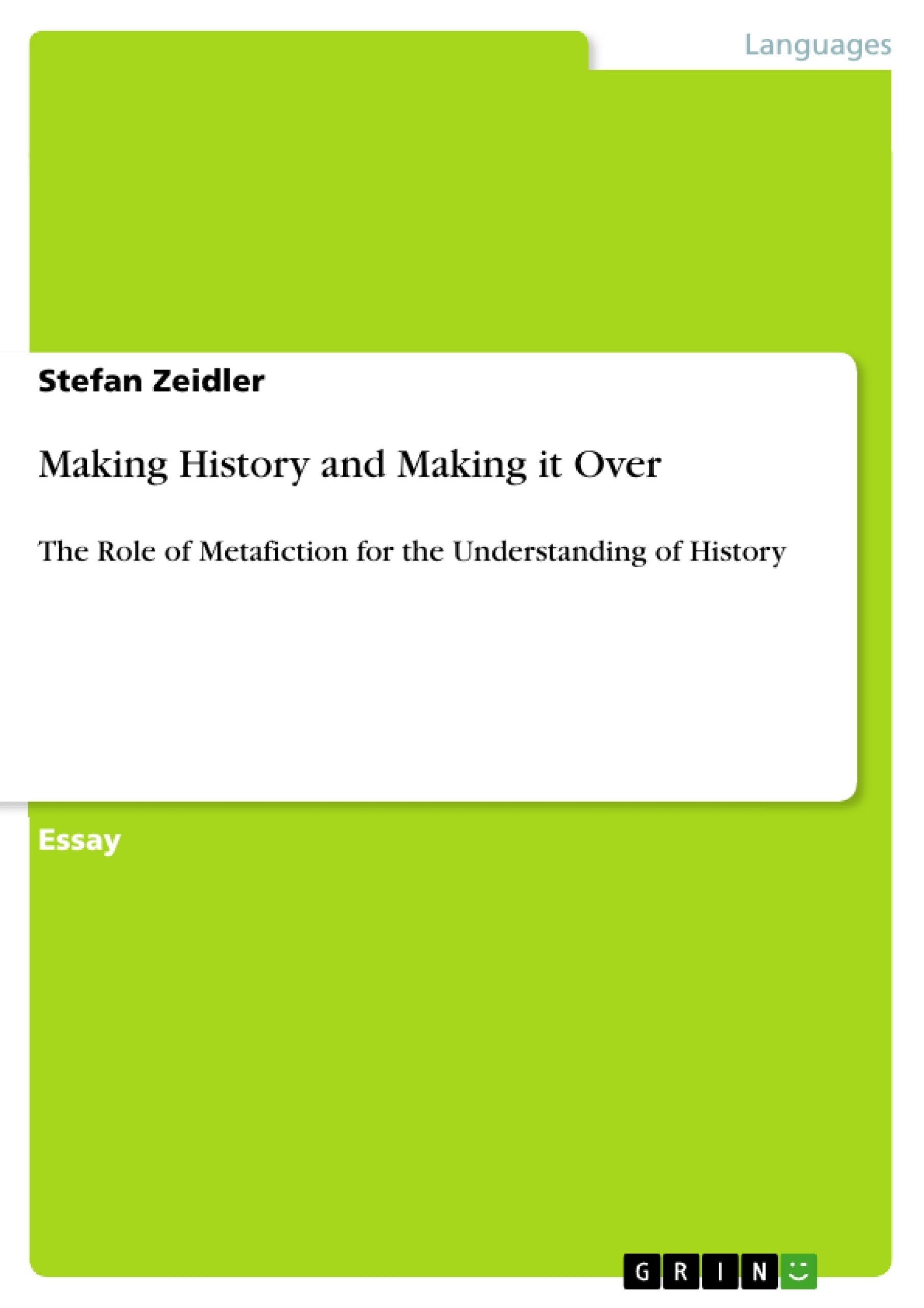Our time of demystified heroes and legends, has only a vague understanding of history and struggles for its interpretation.
History in this context does not only mean the mere sequence of specific incidents and events that cannot be changed retroactively by any access to the past. This concept is furthermore a discussion on these events that is their interpretation. That means that history is and in this form it is most likely to be perceived, the connection of object and subject, referring to the events in the temporal past and its spectator in the present. This creates a subjective ribbon that connects temporal past and present by dint of an interpretive frame. Indeed the past cannot be changed, but its interpretation and analysis can be.
This is exactly the approach of Stephen Fry who provides with his novel Making History a possible answer to the question, how Germany and the world might have developed without Adolf Hitler. Supported by historical facts and enriched by fictitious elements, Fry’s novel affords the reader a manual for the exposure to one’s own past and distorts the understanding of history of the broad majority who ascertains a single man, Adolf Hitler, to be the root for all evil.
The following text tries to analyze the role of historical fiction for one’s accomplishment of history in general and how Fry in particular does away with the common view that history is barely more than the sequence of big men’s big actions.
Therefore, I would like to proceed from the assumption that Making History is a critical metaphor for the work of historiographs who create history by interpreting, omitting and stressing of historical facts. The novel also expresses one’s responsibility for the past one builds his present and future on. Fry uses his protagonist’s thesis, the “Meisterwerk” as a metafictional element to clarify the meaning of historical fiction for developing the understanding of history. Furthermore I will try to clarify the novel’s affiliation to the genre of metahistoriography after a short theoretical digression about this literary field.
Inhaltsverzeichnis (Table of Contents)
- Introduction
- The Concept of History and Fry's Interpretation of History
- Short Digression on Metafiction
- Michael Young and his “Meisterwerk\" as Metafictional References
- Metahistoriography and Cultural Memory - Outlook
- List of Works Cited
Zielsetzung und Themenschwerpunkte (Objectives and Key Themes)
This text explores the role of historical fiction in understanding history, specifically analyzing Stephen Fry's novel "Making History" as a case study. The text aims to challenge the common perception of history as merely a sequence of events, arguing that history is actively shaped through interpretation.
- The relationship between historical fiction and the interpretation of history
- The role of metafiction in understanding history
- The concept of historiography and its relation to fiction
- The significance of cultural memory and the impact of individual narratives on historical understanding
- The responsibility of the historian in shaping historical narratives
Zusammenfassung der Kapitel (Chapter Summaries)
- Introduction: This section introduces the topic of the text and outlines the main themes. It argues that history is not simply a collection of past events, but rather an interpretation of those events. The author introduces Stephen Fry's novel "Making History" as a key example of how historical fiction can challenge traditional understandings of history.
- The Concept of History and Fry's Interpretation of History: This chapter delves into the complexities of history, highlighting its interpretative nature. It explores how Stephen Fry's novel challenges the notion of a fixed, unchanging past by altering the historical narrative. The chapter discusses the postmodernist view of history as a constructed text and how Fry's work embraces this perspective.
- Short Digression on Metafiction: This chapter provides an overview of the literary device known as metafiction. It examines how metafictional elements can highlight the artificiality of narrative construction and challenge the reader's understanding of the text's relationship to reality. The chapter also discusses the importance of metafiction in understanding historical narratives.
Schlüsselwörter (Keywords)
This text focuses on the concept of history and its interpretation, utilizing Stephen Fry's "Making History" as a case study. Key themes include metafiction, historiography, cultural memory, historical fiction, and the responsibility of historians in shaping historical narratives.
Frequently Asked Questions
What is the central premise of Stephen Fry's novel "Making History"?
The novel explores an alternative history where Adolf Hitler was never born, investigating how Germany and the world might have developed differently.
How does the text define "History" in this context?
History is defined as the connection between past events and their present interpretation—a subjective ribbon that links the object and the spectator.
What is "Metahistoriography"?
It is a genre of writing that reflects on the process of writing history itself, often blurring the lines between historical fact and fictional narrative.
What role does "metafiction" play in the analysis?
Metafiction is used to highlight how narratives are constructed. Fry uses his protagonist’s thesis, the "Meisterwerk," as a metafictional tool to clarify the understanding of history.
Does the novel support the "Great Man" theory of history?
No, the text argues that Fry’s novel challenges the common view that history is merely the sequence of actions by powerful individuals like Hitler.
What is the "Meisterwerk" mentioned in the text?
It refers to the academic thesis of the novel's protagonist, Michael Young, which serves as a self-referential element regarding historical interpretation.
- Arbeit zitieren
- Stefan Zeidler (Autor:in), 2007, Making History and Making it Over, München, GRIN Verlag, https://www.grin.com/document/90976



